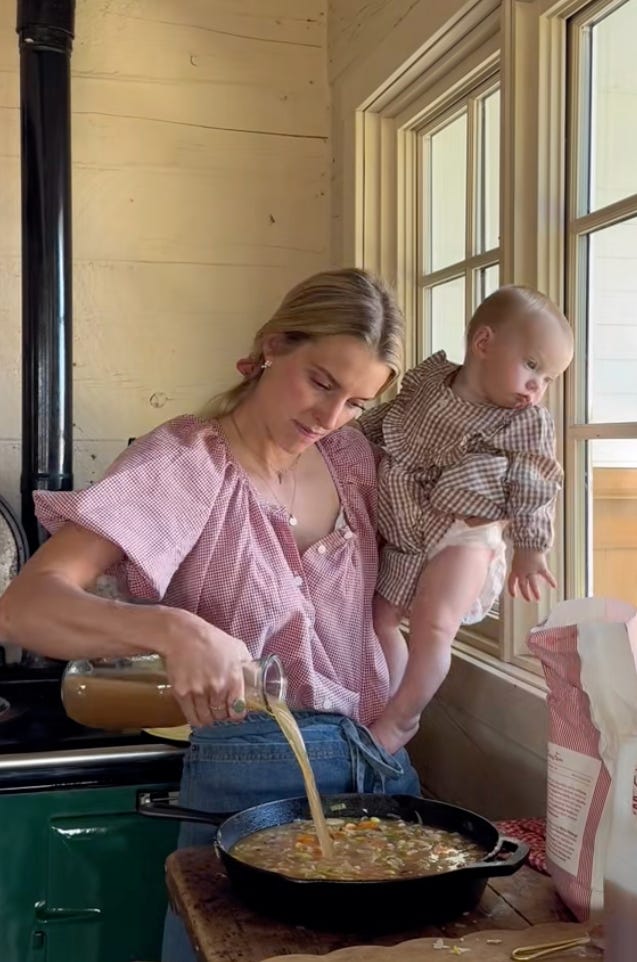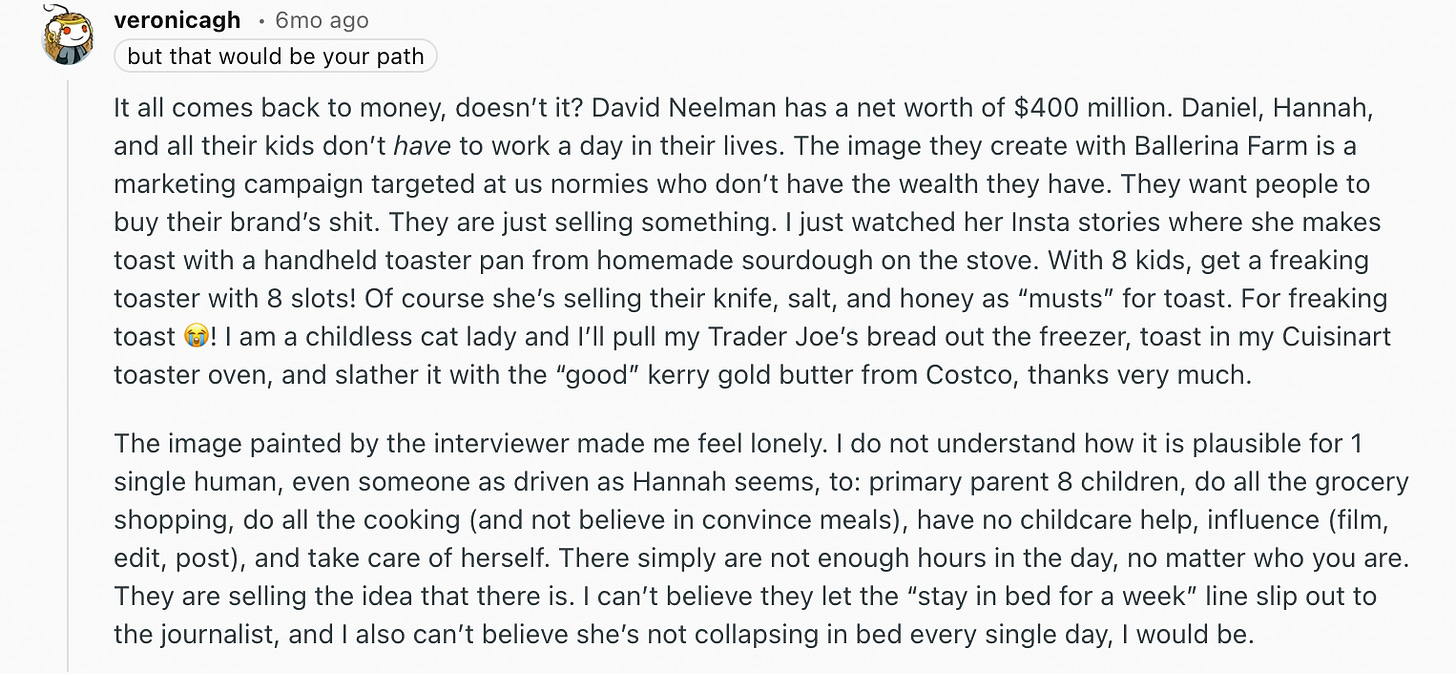Queen of the Trad Wives: How Ballerina Farm’s Interview speaks to a rise in hyper-consumerism and conservatism
In July 2024, Hannah Neeleman gave an interview from her rustic Utah mansion, surrounded by her eight children and husband Daniel Neeleman hulking over her shoulder. The article by Megan Agnew, Meet the Queen of the ‘Trad Wives’ (and her eight Children) garnered polarized responses on social media and from other news outlets, revealing a digital dissonance surrounding gender roles, social media spectacle, and the aesthetics of domestic labour.
Trad, or ‘traditional’ wives, who strive to serve their husbands, their home, and their children, have recently made a resurgence as an aestheticized trend. With 7 million followers on TikTok and now nearly 10 million following the interview, users are obsessed with seeing the day-to-day tradwife lifestyle of Hannah Neeleman. Under the name Ballerina Farm, Neeleman films her days milking cows, cleaning their home, and cooking elaborate from-scratch meals, all with a babe on her hip and not a hair out of place.

Agnew’s article sought to unpack this image of domestic bliss by raising questions about choice, happiness, and control. It detailed Neeleman’s participation in a Miss America pageant just twelve days postpartum, the couple’s rapid marriage and pregnancies, and her demanding homemaking schedule on their 328-acre farm. The piece also included observations that drew attention to the power dynamics in the Neeleman household, prompting both readers’ and Agnew’s skepticism of the idealized relationship between Hannah and Daniel.
“Daniel wanted to live in the great western wilds, so they did; he wanted to farm, so they do; he likes date nights once a week, so they go (they have a babysitter on those evenings); he didn’t want nannies in the house, so there aren’t any. The only space earmarked to be Neeleman’s own — a small barn she wanted to convert into a ballet studio — ended up becoming the kids’ schoolroom.”
“Back then I thought we should date for a year [before marriage],” she continues. “So I could finish school and whatever. And Daniel was, like, ‘It’s not going to work, we’ve got to get married now.’ ” After a month, they were engaged.”
Excerpts like these have prompted varied reactions from the public, with some showing support and others expressing genuine concern for Neeleman’s agency, happiness, and safety.
As the controversy continued, Neeleman released a response where she stated that the article was “an attack on our family and my marriage” and that the way Agnew portrayed her life “could not be further from the truth”. Neeleman’s response encouraged several supporters to flock to their feeds, reiterating that it is Neeleman’s choice to live this lifestyle and arguing against the haters. However, despite this polarized response, Neeleman’s tradwife lifestyle continued to be romanticized, and her follower count continues to grow.

Those criticizing Neeleman were quick to point out that the trend is detrimental to viewers on TikTok, especially young women who may seek to limit their ambitions to the household, and to young men who may reinforce these patriarchal normative roles. Furthermore, issues arise when the #tradwife trend doesn’t just encourage women to choose to embrace more traditional homemaking but also monetizes this ‘choice’ by encouraging users to buy certain products, clothes, and items to achieve it. For example, Ballerina Farm now encourages followers to buy from her brand, which sells food products, apparel, and home goods that align with her lifestyle.

Overall, the release of this article has not slowed down Neeleman or other tradwives, and with the recent spike in conservative values in the US, it is crucial now more than ever that people learn a lesson from Agnew’s portrayal of a life where perhaps not everything is sunny and simple.



